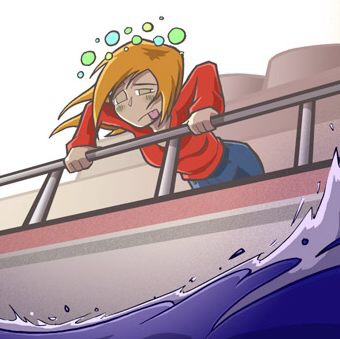
Few things will ruin a cruise faster than feeling seasick. To help prevent motion sickness, the Centers for Disease Control and Prevention recommends staying hydrated, curbing alcohol and caffeinated drinks, eating small meals and limiting external stimuli (closing your eyes, lying face down or keeping your eyes on the horizon). And while some experts say that cabins in the middle of the lower deck of a ship may help temper motion sickness, the C.D.C. has reported that cabin location on a cruise ship does not appear to influence the likelihood of motion sickness.
So what to do? You could take Dramamine or another antihistamine, which can control nausea and vomiting, or a prescription medication such as the Transderm Scop patch or Promethazine, many of which will make you drowsy. If youd rather not, consider trying one of the natural remedies below. They have mixed scientific reviews: Some studies suggest they are effective, others do not. But as anyone who has ever endured seasickness knows, often it cant hurt to try.
Ginger
Ginger, a popular folk remedy for an uneasy stomach, may help with motion sickness, too. According to the National Institutes of Health, ginger contains chemicals that work in the stomach and intestines, but possibly also in the brain and nervous system to control nausea. The key word is possibly. A ratings scale known as the Natural Medicines Comprehensive Database rates the effectiveness of natural medicines based on scientific evidence, according to the Institutes. Ginger is rated as possibly effective for dizziness and nausea, yet possibly ineffective for preventing motion sickness and seasickness. If you want to see if ginger treats your nausea, the University of Maryland Medical Center recommends trying ginger tea or taking a 250-milligram capsule three times a day. (Note, though, that ginger may increase the risk of bleeding for those on blood thinners.) You can also try ginger-flavored lozenges, which the C.D.C. says might help or at the very least prove distracting and that alone can temper queasiness.
Acupressure
Acupressure bands and bracelets (some with magnets in them) claim to prevent motion sickness by stimulating an acupressure point known in Chinese medicine as Neiguan. Applying pressure and massaging this spot located three finger breadths below the wrist on the inner forearm in between the two tendons, as the U.C.L.A. Center for East-West Medicine describes it is said to relieve nausea and motion sickness. Some passengers using chat boards of websites like x say the Sea-Band brand of wristbands has worked for them. There are a variety of brands on the market, though, and if you plan to try one that includes a magnet, be aware that the Food and Drug Administration has warned consumers against purchasing medical devices (or products that claim to be medical devices) over the Internet, including magnets that are advertised to cure multiple conditions such as carpal tunnel, motion sickness, and back ache.
Aromatherapy
For some travelers, essential oils from plants alleviate nausea, especially lavender and peppermint aromatherapy. Yet according to the National Institutes of Health there is little scientific evidence of lavenders effectiveness for most health uses. The same can be said of peppermint oil, despite some studies showing that it improves symptoms of irritable bowel syndrome. Even so, the C.D.C. has reported that stimulating other senses can help distract motion sickness sufferers and in that way, mint or lavender aromatherapy scents may prove effective. So breathe deeply and inhale...
Music
A number of studies have shown the power of music therapy for lessening anxiety, easing nausea and vomiting from chemotherapy, relieving pain after surgery and, yes, for reducing seasickness. The underlying reason? Distraction, which, it turns out, can work wonders. A study published in 2012 by researchers at the University Medical Center Hamburg-Eppendorf in Germany found that distraction isnt only a mental process: It can reduce the number of pain signals traveling from the spinal cord to the brain. So to ensure a bon voyage, consider creating a playlist of your favorite music not just for the benefit of your ears, but possibly your stomach, too.
By Stephanie arose bloom (NY Times: "Prone to Seasickness? Distraction might help)
Re-posted on CruiseCrazies.com - Cruise News, Articles, Forums, Packing List, Ship Tracker, and more.
Please visit CruiseCrazies.com for more cruise news & articles.
Featured photo credit: Scientopia.org












Recommended Comments
Join the conversation
You can post now and register later. If you have an account, sign in now to post with your account.